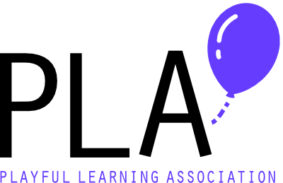Playful Pedagogy to Foster Professional Identity Development
Corresponding Author: Stephanie Hovington
All authors: Janie Lépine
Length: 60 minutes
Location: Gallery Room 1
Description:
Programs focused on human services professions provide students with an opportunity to engage in a process of identity development as professionals. Yet, research shows that university education does not give enough importance to the human dimension of learning necessary for successful practice in a helping and emotional care profession (Bell and al., 2014; Swank, 2012). Additionally, discussion spaces and experiential learning opportunities, considered essential for the construction of a positive professional identity, are not always prioritized in higher education contexts (Goyette, 2019). However, playful pedagogy proves promising in supporting identity development of students, as it encourages emotional engagement in training and interactions conducive to intrapersonal and interpersonal skills development (Forbes, 2021; James and Nerantzi, 2019).
This is why a playful pedagogical approach has been designed and utilized within a group of 30 Canadian students enrolled in a university master’s course focusing on professional identity in psychoeducation. Based on an experiential approach centered on learning about oneself and about others (Kolb, 1984; Mandeville, 2002), this playful pedagogical approach offers a variety of ludic activities that encourage sharing experiences from an interactive and collective support perspective. Furthermore, through a Scholarship of Teaching and Learning (SoTL) research project, this playful pedagogical approach allowed us to examine the meaning of students’ experiences of play as a foundation to the human dimension of learning.
This playful workshop will allow participants from various disciplines to engage in three ludic learning activities in small groups and discuss their pedagogical potential. The following activities will be explored with the participants:
1. The Tree of Life: This activity is based on the metaphor of a tree. Participants will be encouraged to draw a tree, depicting its roots, trunk, branches, leaves, etc., and to consider that each part of the tree represents something about their life (Ncube, 2006).
2. The Label Game: This game aims to create awareness of how labels impact individuals and to understand how one’s sense of self is constructed. Participants will identify and analyze the labels they may apply to themselves or others. This engaging activity can lead to a deeper understanding of personal identity and the influence of societal expectations.
3. The Stick Game: Every great classroom is a sum of its parts, and how each unique student collaborates with their peers plays a crucial role in personal development. Participants will experience the Stick Game as a fun and innovative lesson on teamwork, even in the face of challenges.
In a second phase, examples of students’ perceptions who have experienced the playful activities will be presented to draw the essential challenges and opportunities associated with each ludic activity. Finally, the objectives and structure of the activities will be discussed with the participants so that each person can make them their own and potentially replicate them in their own field of practice. When attendees leave this session, they will have played and learned how the use of games provides faculty with the opportunity to support learning in a creative manner.
References, web links and other resources:
Bell, H., Limberg, D., Jacobson, L., & Super, J. T. (2014). Enhancing self-awareness through creative experiential-learning play-based activities. Journal of Creativity in Mental Health, 9(3), 399-414.
Hovington, S. (2023). La ludification en enseignement: jeux sérieux, pédagogie par le jeu, pédagogie ludique. https://www.youtube.com/watch?v=oESK43gANb4
Swank, J.M. (2012) Using Games to Creatively Enhance the Counselor Education Curriculum, Journal of Creativity in Mental Health, 7:4, 397-409,
